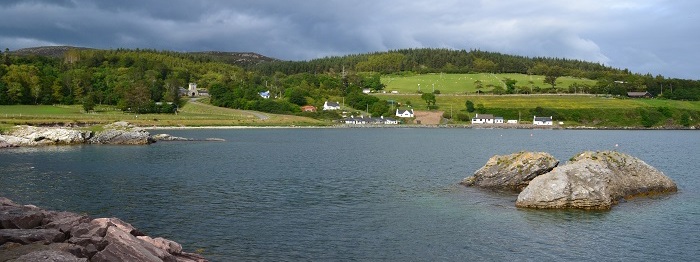
Tastes and Smells
Why does my water taste or smell strange?
Some people are very sensitive to smell and taste. Drinking water in Scotland is of a very high quality but you may sometimes notice a slight taste or smell, particularly of chlorine. If you do there is no cause to worry.
BUT, if you notice a particularly bad or strong smell or taste which means you cannot drink the water, or you notice a smell or taste for the first time, you should contact Scottish Water immediately. Contact details are listed on this website under Contact Us - Scottish Water.
What causes tastes and odours in water?
Any one of the following could cause people to notice a slight smell or taste in their drinking water:
- The use of chlorine as a disinfectant
- Seasonal changes
- A change in your water supply
- Moving from one area to another
- Your plumbing
What about seasonal changes?
Much of our drinking water is obtained by treating waters taken from rivers and reservoirs. In summer, these waters sometimes have a musty or earthy smell or taste before they are treated. Treatment removes most of these smells and tastes, but less so in hot and dry weather.
Are these smells or tastes harmful?
No. The slight smell or taste is harmless, however if you notice a strong musty or earthy taste or smell you should contact Scottish Water.
What if my water supply changes or if I move house?
The content of water is complex and varies from area to area, often because of the different rocks and soils through which it passes.
Treated waters from different areas have different tastes. Hard water from a chalky area will have a very different taste from soft water from a reservoir in the hills. In some parts of the country, Scottish Water can supply treated water from different sources.
If Scottish Water needs to change supplies, for example because of increased use of water in the summer, you may notice a change in the taste. Similarly, if you move to another area you may notice that the water tastes different, although it still complies fully with the standards. Most people become used to the taste of the new supply very quickly.
Why does my water taste of chemicals or medicine?
Sometimes the small amount of chlorine added to water reacts with chemicals called phenols that are found in certain plastics. These produce a strong taste that may be described as medicinal or even metallic. Usually the cause is an item in the property’s plumbing that is not British Standard approved. Pinpointing the exact cause may require some detective work, or even the services of an approved plumber, but common causes are:
- Tap washers: Changing the washer for a BS approved one will cure the problem
- Washing machine or dishwasher hoses connected to the supply: Fitting a non-return valve will prevent affected water being sucked back into the supply
- Non-approved outside tap ‘kits’ connected to the supply: Fitting a non-return valve will prevent affected water being sucked back into the supply
If the problem is only present in hot drinks, the problem may be due to a kettle. This can be confirmed by using water boiled in a metal pan on the stove to see if that still has the taste. Purchasing a different kettle without plastic in contact with the water should resolve this.
Why does my water taste of petrol / oil / solvents?
This is not a common problem and should be investigated immediately. First check that the taste / smell is in the water and not derived from the surrounding air in which you are tasting the water, then contact Scottish Water without delay.
Possible causes include spillages of petrol or hydrocarbons that have made their way through the soil and penetrated the plastic main. The usual cause is a petrol or diesel spill on a driveway, but sometimes more than one property is affected.

